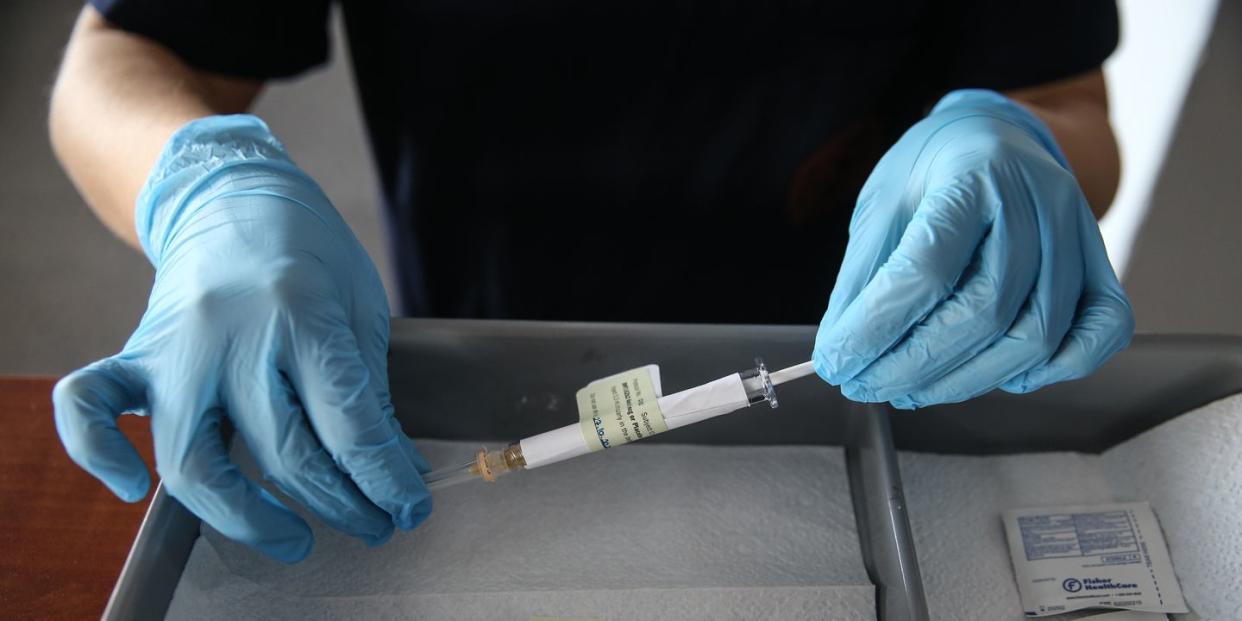The Biggest Difference Between a Vaccine and a Treatment

As the coronavirus continues to shake the country without proven medications to fight the novel disease, doctors and scientists are racing for a breakthrough in developing both vaccines and treatments.
But as dozens of COVID-19 vaccines enter advanced clinical trial stages and the FDA approves possible treatment drugs (such as Remdesivir) and continues to review others, we've noticed that there's confusion around what a vaccine does and what a treatment does.
The biggest difference between a vaccine and a treatment is that one is designed to prevent, while the other is designed to treat or cure. Both, however, would be beneficial when it comes to preventing and managing COVID-19.
Vaccines: What they are and what they do
A vaccine is a product that stimulates the immune system to produce immunity to a specific disease without you ever having to get the disease first, according to the Centers for Disease Control and Prevention. For example, the flu shot is a vaccination that works to prevent a person from getting sick from influenza by rallying the immune system against the viruses that cause the flu.

Treatments: What they are and what they do
Treatments, on the other hand, come into play after an individual is already sick. They work to help those that are sick survive and recover.
Dr. Davey Smith, head of the Division of Infectious Disease and Global Health at UC San Diego, says that while vaccines for COVID-19 are important, treatments are still crucial. “The FDA said they will approve a coronavirus that works 50 percent of the time,” he explains. “I still have a 50% chance of getting sick. And I really need to have a [treatment] that’s going to keep me from getting sicker and perhaps dying.”
Ultimately, establishing both vaccines and treatments during the pandemic is vital as COVID-19 continues to spread.
You Might Also Like

